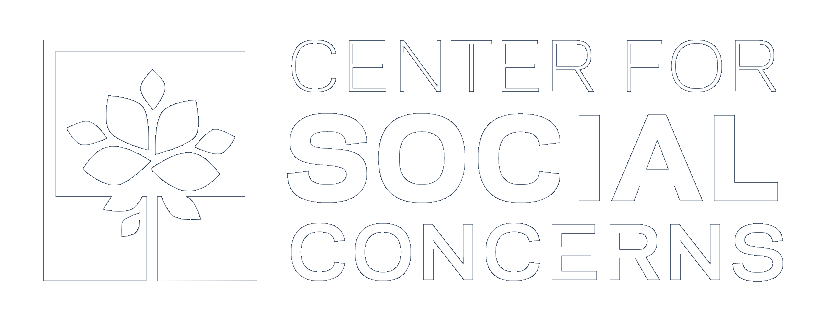How can universities encourage students to move beyond cognitive engagement with ideas about flourishing into habits and ways of being? For students in Villanova University’s Honors Program, a Living Learning Community with a focus on “The Examined Life: the Good, the True, the Beautiful,” aims to do just that, combining a series of well-designed classes around big questions with shared housing, meals, and co-curricular activities with peers.
“80% of incoming honors freshmen choose to live in the honors dorm and they fulfill their first general education classes through a series of courses together. The Examined Life is the most popular living learning community,” said Anna Moreland, Anne Quinn Welsh Endowed Chair of the Honors Program and Professor of Humanities at Villanova. “By having students live together and share meals in the same dining hall, our hope is that classroom conversations will continue over meals, and that students will work through these big questions outside the classroom as well.”
Students in the living learning community participate a three-course series that are framed around a series of questions and are intended to bring students into dialogue with what the most influential thinkers throughout time have argued about goodness, truth, and beauty.
“The first question they explore in a seminar the fall of their freshmen year is ‘What is the good life?’ The course opens by asking what it means to be a good human being, and throughout the semester that gets unpacked and leads to other questions, such as ‘What are my social and political responsibilities? What is the relationship of my good to the good of the earth and its creatures? And What is the relationship between our good and some ultimate good like God?” Moreland said.
“Then spring of their first year they take a seminar to ask ‘what is true?’ That’s an important one. It is the most philosophical of the three, and intellectually I would say it is the most demanding, but it is an integral question, especially in a university setting.” Moreland said. “Not everyone takes the third class in the series, but that course on Beauty fulfills the sophomore writing seminar for students in arts and sciences. Students in that course consider beauty across disciplines and centuries and what connection it has to the good and the true.”
Throughout the courses, professors incorporate lecture and seminar discussion, inviting the cohort into a collaborative inquiry into what they can desire, know, and delight in as human beings. Honors students also participate in co-curricular experiences, such as visiting art museums and the theater together.
“What is great is the language of the examined life – the good, the true, and the beautiful – ends up being peppered throughout an honor student’s experience. I see students themselves maintain that language and draw upon it in other courses they take later and in informal conversations,” Moreland said.
There are approximately 650 students in the honors program at Villanova, about 10% of the total student population.



